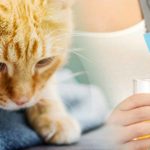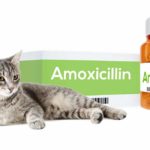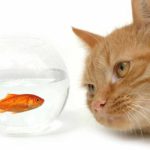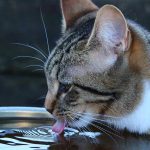Senior cats need a special low fat diet, and often help with mobility. Arthritis is common in elderly cats, and creeps up on you both gradually over … [Read more...]
Flat Faced Cats – Investigating Brachycephalic Cat Breeds
Flat faced cats are widely admired for their squashed features. Their muzzle is short, nostrils are narrowed and the bridge of their nose often has … [Read more...]
Miralax For Cats With Constipation
Miralax is a laxative powder that is added to your constipated cat's drinking water. When your cat digests this drug it binds to the water in their … [Read more...]
My Cat Ate A Lizard – What Do I Do Now?
In my experience, cats are practically unrivaled in the animal kingdom for doing bizarre and alarming things with complete nonchalance. Among the most … [Read more...]
Buprenex For Cats
Buprenex for cats is an opioid painkiller usually prescribed by veterinarians following a serious injury, surgery or for pets in chronic pain. … [Read more...]
Amoxicillin For Cats – How It Works, Dosage And Side Effects
Amoxicillin for cats is a broad-spectrum prescription based antibiotic medication. This drug is effective against bacterial infections. Veterinarians … [Read more...]
What To Do Before You Neuter Your Cat
Understanding what to do before you neuter your cat is an important part of the process. After all, it may be a routine procedure for veterinarians, … [Read more...]
Prozac For Cats – Would Your Cat Feel The Benefits?
Prozac is a standard treatment for cats with anxiety disorders or specific inappropriate behaviors. It can be very stressful coping with a cat that is … [Read more...]
5 Real Benefits Of Fish Oil For Cats
Fish oil for cats is a supplement that you can feed to your kitty. And it actually has scientifically confirmed health benefits! These include … [Read more...]
Is Your Cat Drinking A Lot Of Water – Find Out Why
A cat drinking a lot of water is usually one with a health problem. For the first few weeks after my kitten Billy came to live with us, I don’t think … [Read more...]
- 1
- 2
- 3
- 4
- Next Page »









